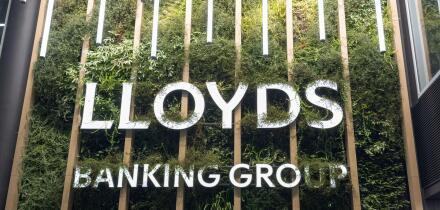SOVEREIGN BOND OF THE YEAR
Spain
€15bn 1.25% October 2030
Barclays, BNP Paribas, Citi, HSBC, JP Morgan, Santander
Europe was still in the first throes of the coronavirus crisis on April 22. Curves had widened rapidly and investors were demanding steep new issue premiums.
In economic terms, the world was leaning on sovereign borrowers to provide the money for furloughs, support for healthcare systems and emergency financial aid. In capital markets, the story was similar. Eyes were on the world’s sovereigns to reopen capital markets.
Although Spain’s deal was not the first to do so, it was the largest single tranche ever. And, despite the turbulence and the colossal size, it managed to secure a low new issue premium.
Above all, the deal demonstrated that coronavirus would not pose an immediate threat to debt sustainability in the eurozone, and that Europe’s sovereigns had the tools to weather the storm.
SUPRANATIONAL EURO BOND OF THE YEAR
European Union
€10bn 0% October 2030 social bond
€7bn 0.1% October 2040 social bond
Barclays, BNP Paribas, Deutsche Bank, Nomura, UniCredit
The European Union made a huge statement as it kicked off its colossal Support to Mitigate Unemployment Risks in an Emergency (SURE) funding programme in October.
With demand topping over €233bn across the two tranches, it was the biggest ever order book for a bond deal in any currency or product.
Despite the mammoth deal sizes, the new issue premiums were tiny at just 1bp and 2bp for the 10 and 20 year tranches, respectively.
The two bonds were also the biggest social bonds ever issued, giving a huge boost to the development of this market.
SUPRANATIONAL DOLLAR BOND OF THE YEAR
World Bank
$8bn 0.625% April 2025
Barclays, BMO Capital Markets, Citi, TD Securities
The coronavirus crisis is one of the most widespread and profound disasters in recent memory. Beyond the direct death toll, the economic ramifications of lockdowns and production slowdowns have disproportionately affected lower income countries.
The global community has leapt into action, mobilising huge amounts of capital to help clients recover from the virus’s impact. No deal better exemplifies the response of this community than World Bank’s $8bn outing in April. The deal came alongside the issuer’s largest euro deal, one of its largest sterling deals and the largest Swedish krona deal from a supranational. All in all, World Bank raised $15bn in a week.
The dollar deal was the centrepiece, however, reaching about 190 investors and, in spite of its size, paying only 4bp of premium.
AGENCY DOLLAR BOND OF THE YEAR
Cades
$4bn 0.375% September 2025 social bond
BNP Paribas, Crédit Agricole, HSBC, JP Morgan
This was the first social bond in dollars from Caisse d’Amortissement de la Dette Sociale (Cades) after it set up a framework earlier in September to help finance an increasing deficit in France’s social security system.
It was the biggest ever social bond in dollars, coming just a week after the French agency — set up to pay off France’s social security debt — had printed the biggest ever social bond in euros with its debut deal in the format in that currency.
The deal was priced tightly, landing with either a 1bp new issue premium or bang on fair value.
As a result of the increased financing needs, Cades added an extra €20bn to its 2020 funding programme, most of which was met with social bonds. Its mandate has been extended from 2024 to 2033.
AGENCY EURO BOND OF THE YEAR
Unédic
€4bn 0.1% November 2026 social bond
Barclays, BNP Paribas, Crédit Agricole, Natixis, Société Générale
Unédic launched its social bond programme with the biggest ever deal in the format at the time. It was also the French agency’s largest deal since November 2009, when the world was reeling from the global financial crisis.
The deal was almost two times covered, exceeding €7.75bn in demand. The spread came in by 4bp to land at 36bp over OATs.
All of Unédic’s funding since its debut social bond in May has come through the issuance of social bonds, with €17bn raised under that format in 2020.
Unédic is a pure social player. The proceeds of its funding help it carry out its mission of supporting the unemployed and preserving jobs in France.
SUB-SOVEREIGN BOND OF THE YEAR
Land NRW
€1.3bn April 2023 tap
JP Morgan
The German State of North Rhine-Westphalia was among the first borrowers to return to the euro market after the coronavirus volatility broke into Europe.
The deal would have been unremarkable otherwise — a €2.3bn book and a substantial new issue premium versus the secondary curve — but the challenges NRW faced in bringing the deal to market were steep.
Liquidity had dried up so completely in the secondary market that it was next to useless as an indicator for the primary market. Nevertheless, the deal was a success, launching NRW’s enlarged coronavirus funding programme, and emboldening other issuers to follow it into the market.
RISK-FREE RATE BOND OF THE YEAR
World Bank
$700m Sofr seven year
Wells Fargo
World Bank sold the longest ever deal linked to the secured overnight financing rate in August — a deal that won it “bragging rights”, according to bankers away from the trade.
Though the deal itself was impressive — a $700m outing with only 1bp-2bp of premium, despite the curve extension — the distribution was perhaps its key feature.
Breaking into the domestic US investor base has long been a cherished ambition of the SSA community. Many US banks are natural Sofr buyers, but rely on the US agencies to meet their needs. However, since the agencies offer supply up to only around two years, by going longer in the curve World Bank was able to access a group of new investors.
GREEN BOND OF THE YEAR
Germany
€6.5bn 0% August 2030 green bond
Barclays, Commerzbank, Crédit Agricole, Deutsche Bank, JP Morgan, UniCredit
Germany’s entrance to the green bond sector was a huge step for the market. Germany, as the de facto issuer of the safe asset of choice in euros, took the opportunity with its debut green deal to prove that green bonds do indeed trade more tightly than conventional bonds.
The deal itself was a roaring success, attracting a huge book and raising funds inside Germany’s conventional curve.
But perhaps the most notable feature of the deal was the twin bond structure, which provides a template for sovereigns to ensure the liquidity of their sovereign curves while stepping into the green bond market.
SSA STERLING BOND OF THE YEAR
UK
£12bn 0.375% October 2030
Bank of America, BNP Paribas, Citi, HSBC, Lloyds Bank, RBC Capital Markets
The UK smashed all its previous records for deal and order book size as it sold its first ever 10 year line via syndication in May.
The UK appointed a bigger syndicate than usual of five bookrunners and one co-lead manager for this deal, as it looked to attract a more diverse range of accounts than its usual long-dated investor base.
“It was vital this one went well, and they have certainly pulled that off,” said a banker away from the deal at the time.
The deal was the first of two syndications by the UK in May, an unprecedented move by the sovereign as it mobilised to pay for the country’s response to the devastating impact of the coronavirus.






